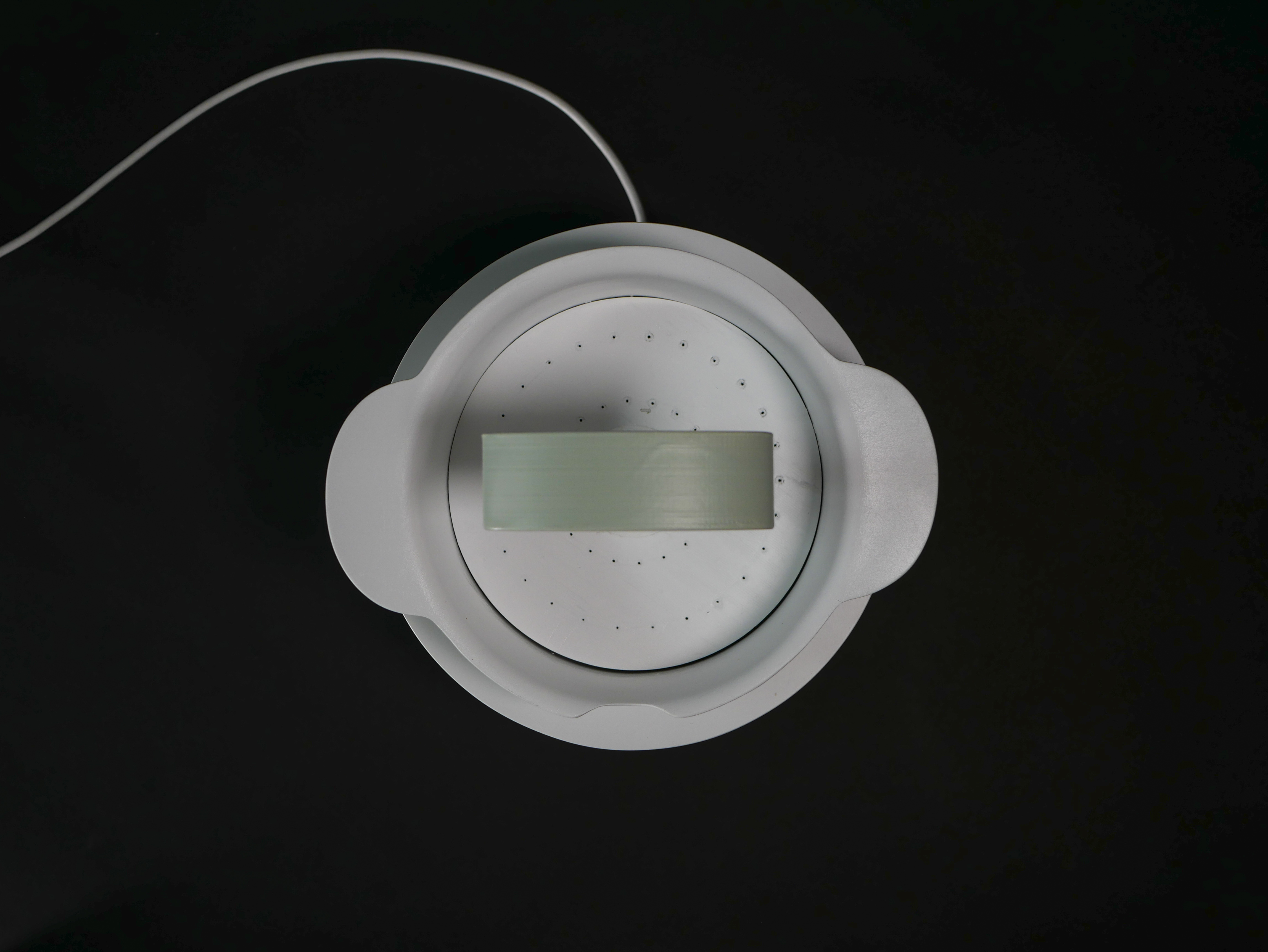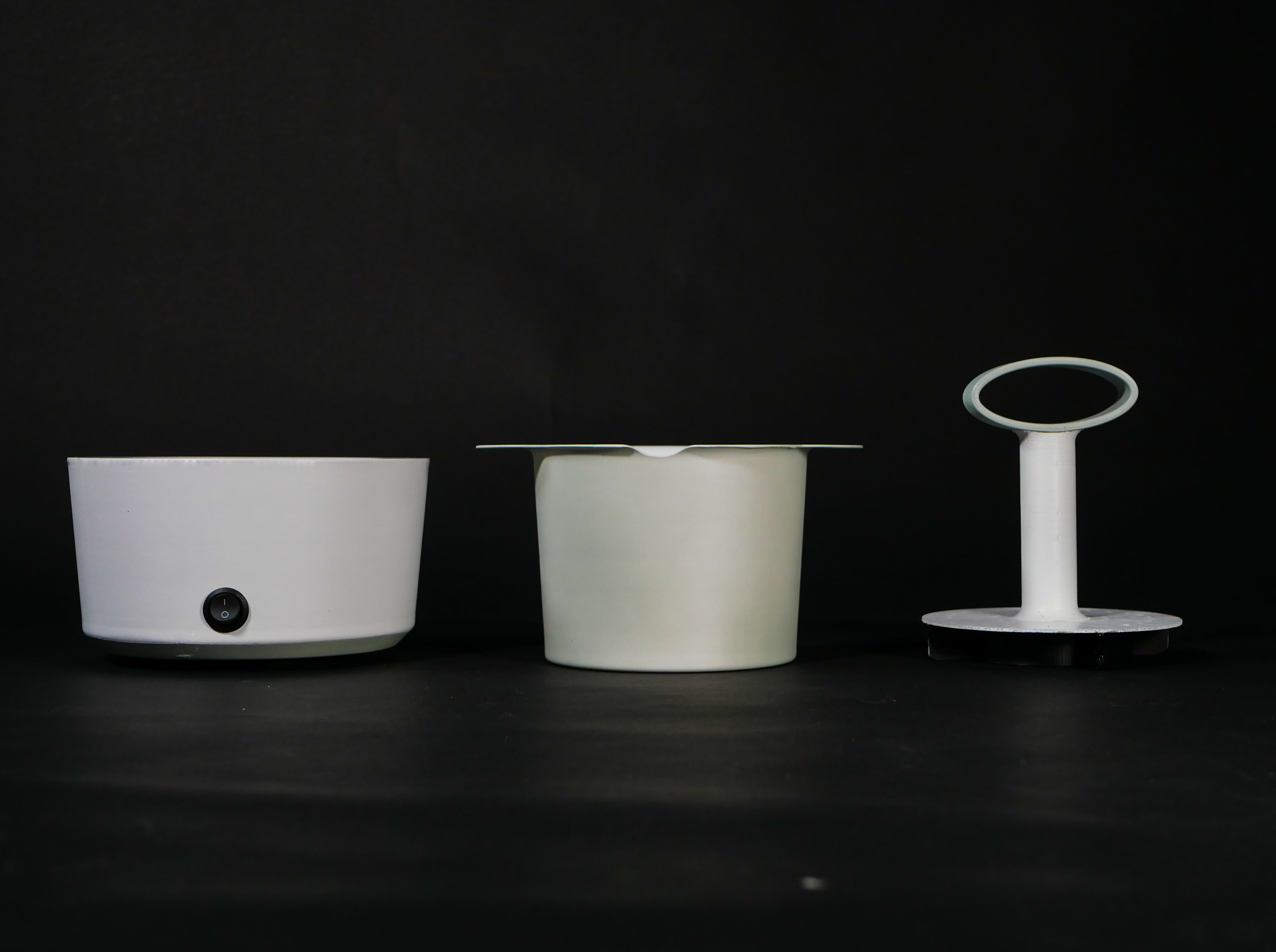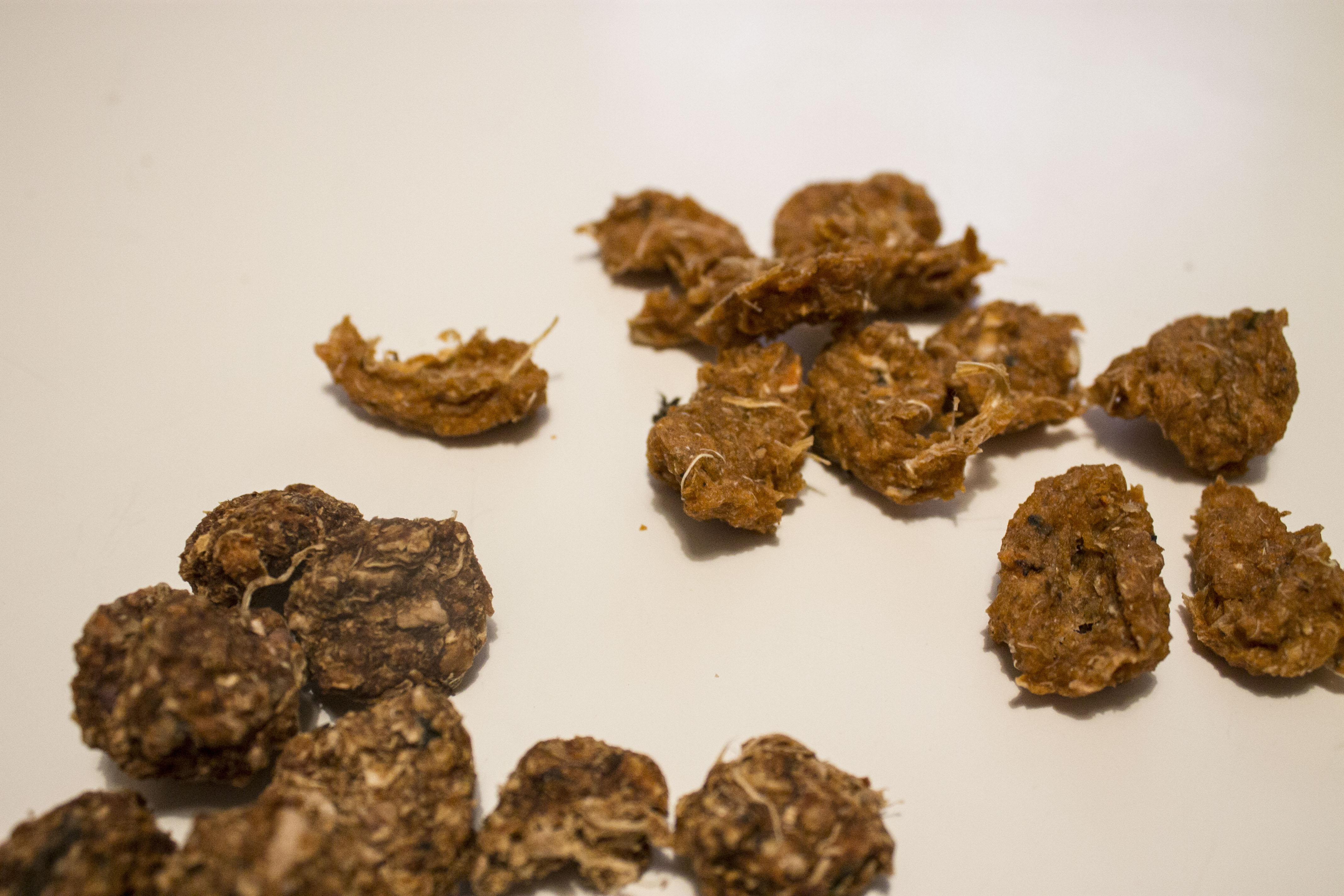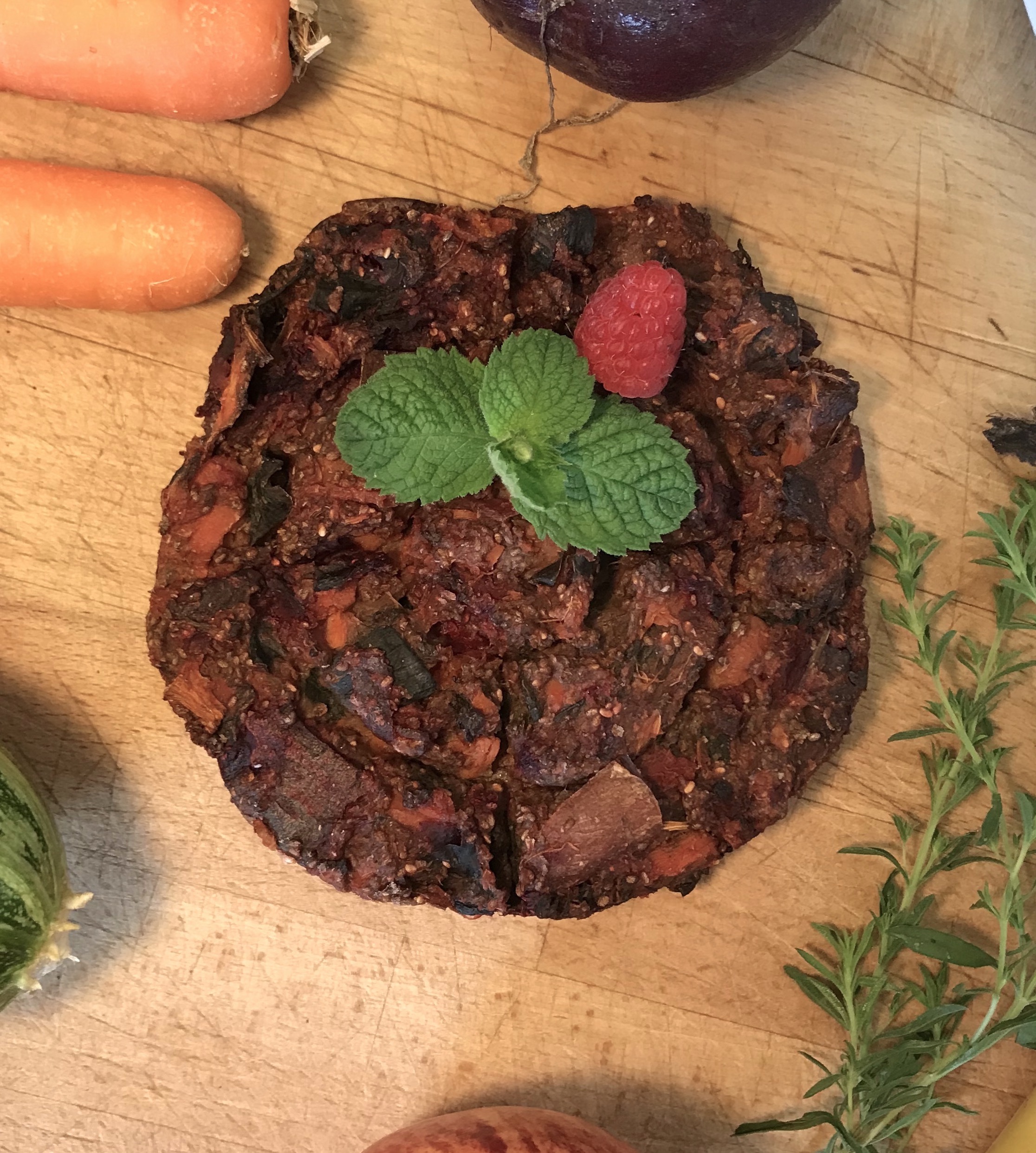Deli.Dog I Alina Seegert
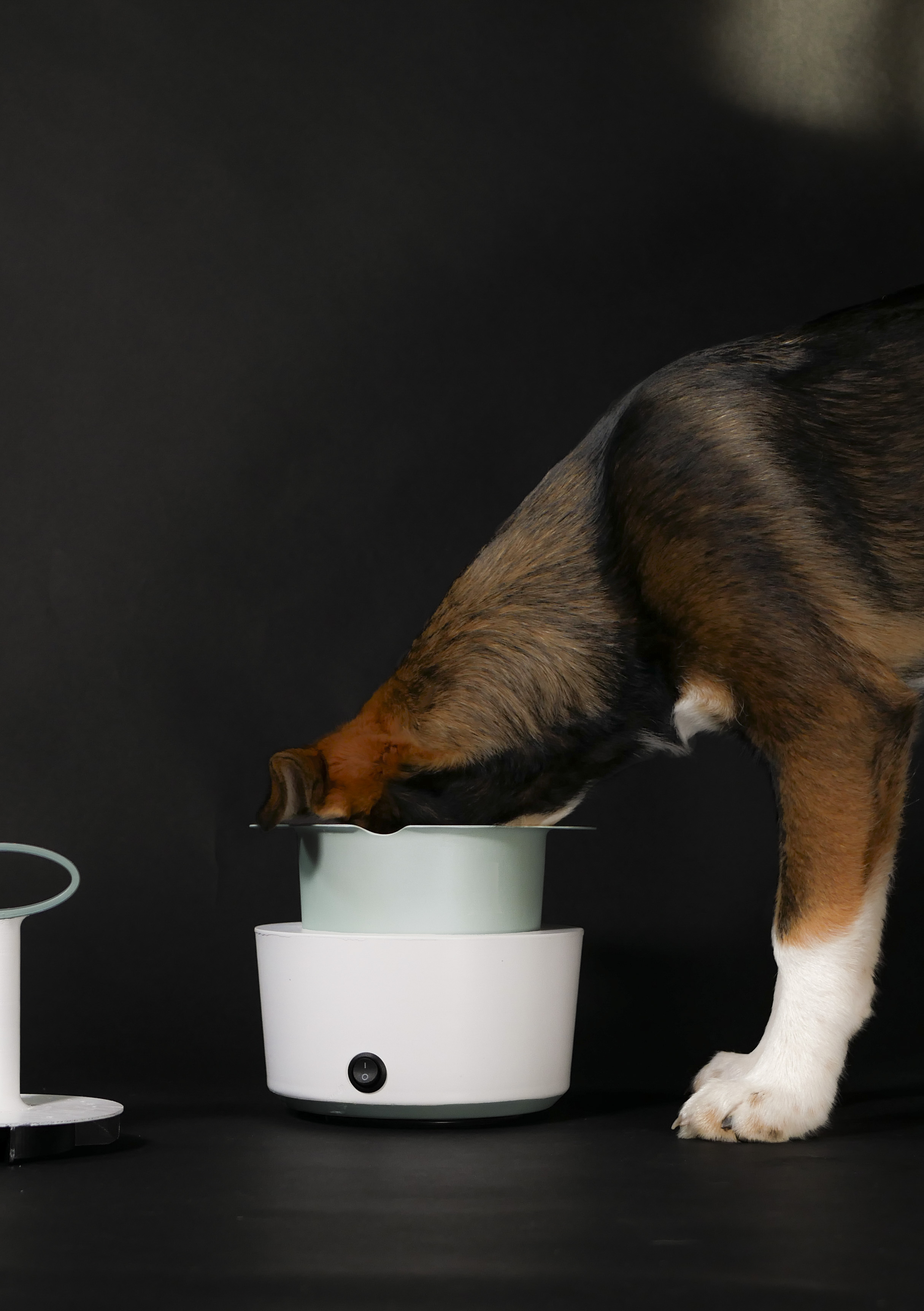
DELI.DOG - dry dog food from our own kitchen Among all animal-human friendships, the friendship with the dog is the longest and most widespread, as the wolf was the first animal to be domesticated. One reason for this early cohabitation must have been that even the first dogs could be fed with all kinds of food scraps from the human household, not only of animal origin, but also vegetables.In the past 15 years, the number of dogs kept in Germany has increased from 6.5 to 10 million, according to estimates. All these animals also need to be fed. The meat consumption of American cats and dogs alone would be enough to keep the USA in fifth place among the nations with the highest meat consumption in the world. Already today, up to 70 per cent of all global agricultural land is taken up by animal feed production. Conventional meat production is one of the biggest climate polluters. Cattle emit environmentally harmful methane, but the massive use of fertilisers and pesticides, the clearing of rainforest for soya production and the draining of wetlands also contribute to climate change. In addition, one has to imagine that all the food is packed in mini cans up to 20 kg plastic bags and exported worldwide. Which does not improve a dog's CO2 footprint. This is why my approach is to produce the food for the four-legged friend in parallel with our own vegetable-based dishes. In order to still have a positive influence on climate change, we have to eat a vegan diet sooner rather than later. This makes it easier to collect sufficient organic leftovers to process them into dog food. Steaming makes the vegetables soft and more digestible. Afterwards, you should squeeze out the water and drain it to make the food firmer and more durable. If you then heat it to bake it, it can even be kept for days up to a few weeks. In this way, every dog owner can cater to the individual needs of the dog and significantly minimise their own leftovers. In industrially produced dog food, it is often no longer possible to recognise or trace what has been processed, and more and more dogs suffer from allergies where it is no longer possible to draw conclusions about their origin. In contrast, we could also buy our vegetables all produce locally and seasonally, and process them without packaging for us and the dog. This would mean that no meat would have to be produced and the environment would be significantly less polluted. However, a CO2 pawprint cannot be completely avoided. London's parks alone are watered with 4.5 million litres of dog urine every year. But with an awareness of nutrition, many problems can be positively counteracted for humans as well as dogs.
